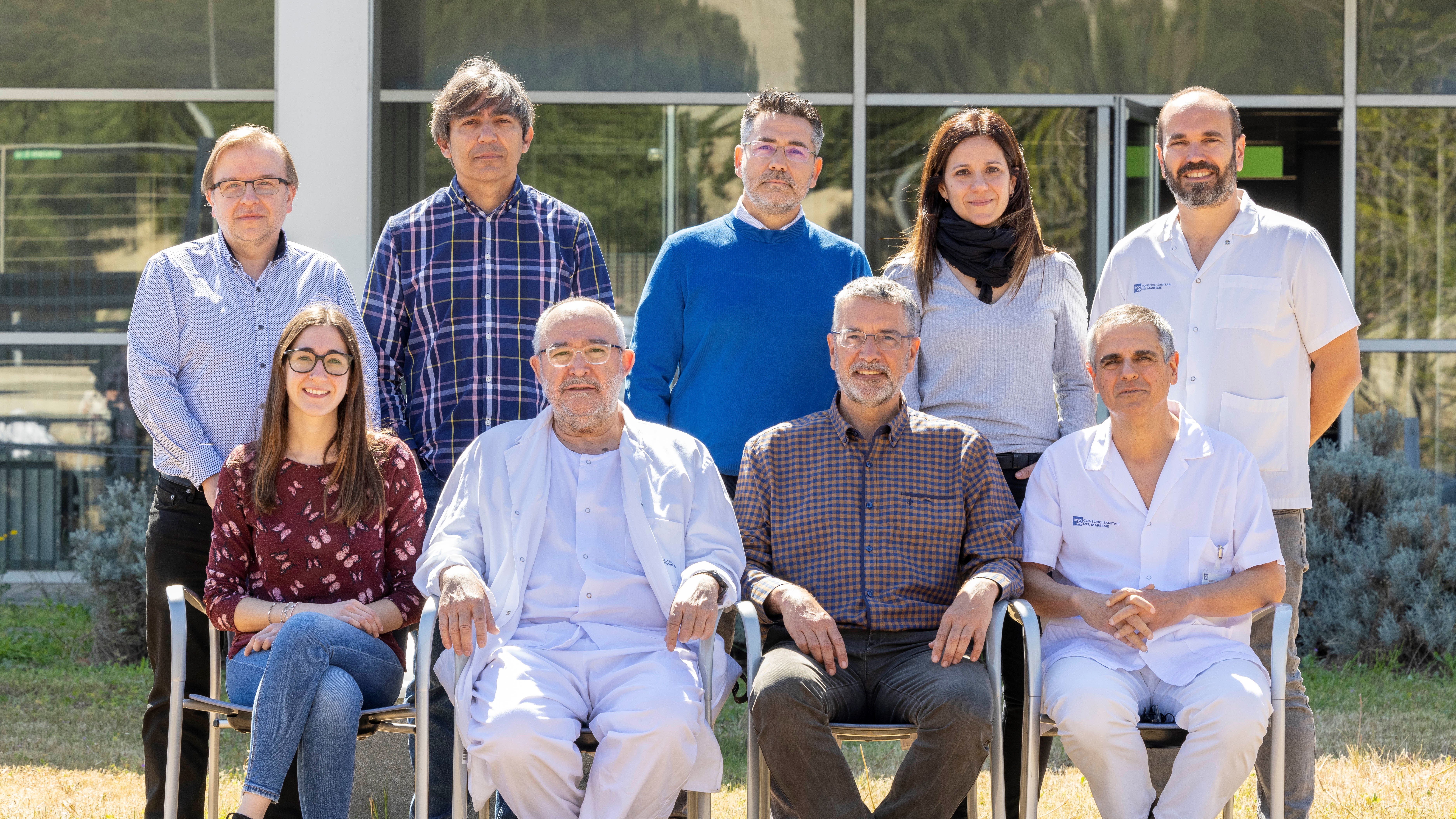About
The Research Group on Sarcopenia, Frailty and Dependency (GRESFD) is a group accredited by the Agency for Management of University and Research Grants (AGAUR) from the Catalan Government (2021 SGR-01272). It has the mission to generate useful scientific knowledge for the prevention of sarcopenia, frailty and functional decline in aged population. The group is compsed of 14 people (5 doctors), of whom 50% are women.
In the last 5 years, the group has obtained 6 competitive grants with a cumulative amount €700,000 and has published 62 scientific articles (30% in Q1 jorunals) with a total impact factor of 137. Dr Serra-Prat, leader of the group, has an h-index of 39, an i10 index of 101, and an average of 46 citations per article. The group has participated in two European projects (GRACE and Mid Frail) and has collaborated with numerous research groups. GRESFD has generated 11 doctoral theses and 6 more are currently underway.
The main research lines of the group are the evaluation of the causes and consequences of frailty, the assessment of effectiveness of interventions for its prevention, and the development of innovative tools for its diagnosis and treatment.
Keywords: Ageing, sarcopenia, muscle mass, muscle strength, frailty, dependency, functional capacity, functional decline, epidemiology, risk factors, effectiveness.

Group leader
- Mateu Serra Prat, MD, PhD, MPH
Mateu Serra Prat, MD, PhD, MPH
Mateu Serra-Prat is a specialist in preventive medicine and public health. He is accredited by the Catalan University Quality Agency as a researcher (U1445/101033777-174), leader of the accredited research group on Sarcopenia, Fragility and Dependency (SGR 2017-304) and member of the CIBEREHD research group on digestive motility. In the last 10 years, Dr Serra-Prat has been the principal investigator of eight competitive grants and has been the director of seven doctoral theses. Overall, he has published 170 indexed scientific articles, which have been referenced 8,991 times (average 52.9 references per article), with an H index of 42 and an i10 index of 107 (as of April 2024).
Contact: mserra(ELIMINAR)@csdm.cat
ORCID: 0000-0002-6554-9913
Research lines
Fragility is a clinical syndrome with multiple causes, which are neither well known or understood, characterised by a loss of muscular power and physiological reserves that lead to a situation of vulnerability and increased risk of suffering disability, health complications, dependence, institutionalization and death from external aggressions.
It has an occurrence of about 10% in the population over 65, greater prevalence in women and increases sharply over 89 years. Fragile individuals consume more health and social resources. Experts agree that fragility is a dynamic condition that is potentially reversible if it is detected and treated early with exercise, correct nutrition and protein supplement and control of underlying illnesses along with a reduction in polypharmacy. Studies of the causes, prevention and or treatment of the fragile syndrome must necessarily be multidisciplinary and include professionals from many specialisations.
Evaluation of the pathophysiology and risk factors of sarcopenia, frailty and functional decline in the elderly
With special emphasis on the study of:
- Nutritional status and hydration status and its impact on muscle function.
- Biomarkers of sarcopenia and frailty, such as hematological parameters (Hb, lymphocytes), ions (Na), osmolytes (urea, glucose), plasma and urinary osmolarity, hormones (copeptin), metabolites (3-Methyl-Histidine), inflammatory markers ( PCR, IL-6), etc.
- Drugs, polypharmacy and appropriate use of medication in the elderly.
- Physical activity in the elderly.
- Social determinants such as social isolation, level of education, income or home conditions.
Evaluation of the effectiveness and safety of multimodal interventions aimed at preventing and/or reversing frailty and disability in the elderly
Assessment of the impact of frailty on the health and quality of life and assessment of the economic impact of frailty
Development and validation of electronic and automatic instruments for mass screening of frailty and/or disability to generate information at population level useful for health planning and management
Active projects
- Estudi AQUA'M. Observacional (FIS PI19/)
- ESPAI Fragilitat. Assaig clínic (PECT)
- FIS 22-Observacional
- FIS 22-Assaig clínic
- Anàlisi dades programa PADRIS:
- Tendències en l'epidemiologia de la Fragilitat a Catalunya
- Desigualtats territorials (segons ABS) en la prevalença, incidència i mortalitat de fragilitat
- Validació externa de l'e-SIF i efecte del grau de fragilitat en el consum de recursos sanitaris
- Adequació de la medicació i les seves conseqüències
- Efecte de la fragilitat en les complicacions postoperatòries, tolerància a la QT i supervivència en ancians amb càncer de colon no metastàtic
- Efecte de les benzodiacepines en la fragilitat
- Valor pronòstic de la BIA en ancians ingressats en un centre d'atenció intermèdia
- Programa pilot de cribratge de la fragilitat a Mataró (Continuïtat ESPAI fragilitat-PECT)
- Valors de referència de la capacitat aeròbica en prova submàxima, indicador d'edat biològica
- Observatori de Fragilitat i Dependència (Continuïtat e-SIF-PECT)
- Envelliment en la discapacitat intel·lectual
- Guia pel tractament de la fragilitat en ancians hospitalitzats
- Validació calculadora m-SIF
Scientific publications
Highlighted 2023 publications
Lavado À, Serra-Colomer J, Serra-Prat M, Burdoy E, Cabré M. Relationship of frailty status with health resource use and healthcare costs in the population aged 65 and over in Catalonia. Eur J Ageing. 2023 Jun 7;20(1):20. DOI: 10.1007/s10433-023-00769-8.
Moreno-Carmona MR, Serra-Prat M, Riera SA, Estrada O, Ferro T, Querol R. Effect of frailty on postoperative complications, mortality, and survival in older patients with non-metastatic colon cancer: A systematic review and meta-analysis. J Geriatr Oncol. 2023 Oct 6;15(2):101639. DOI: 10.1016/j.jgo.2023.101639.
Serra-Prat M, Lorenzo I, Martínez J, Palomera E, Pleguezuelos E, Ferrer P. Relationship between Hydration Status and Muscle Catabolism in the Aged Population: A Cross-Sectional Study. Nutrients. 2023 Nov 8;15(22):4718. DOI: 10.3390/nu15224718.

